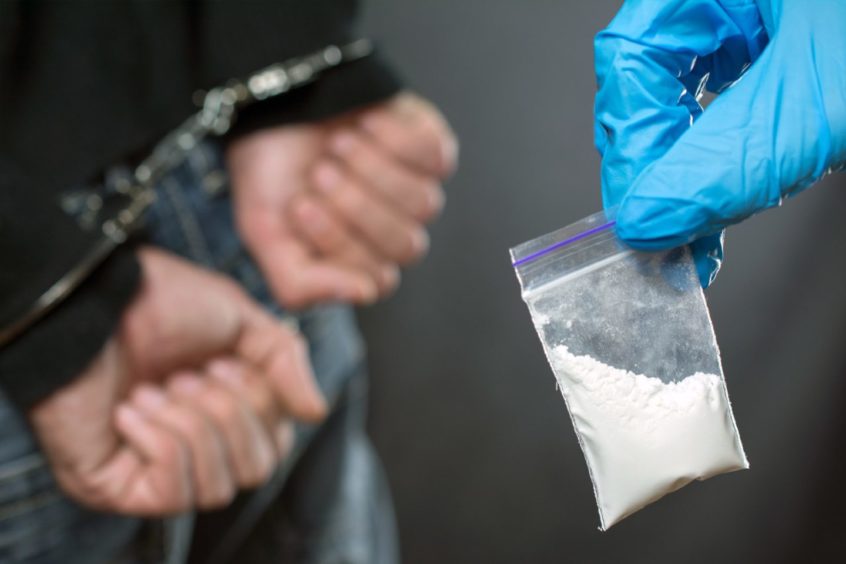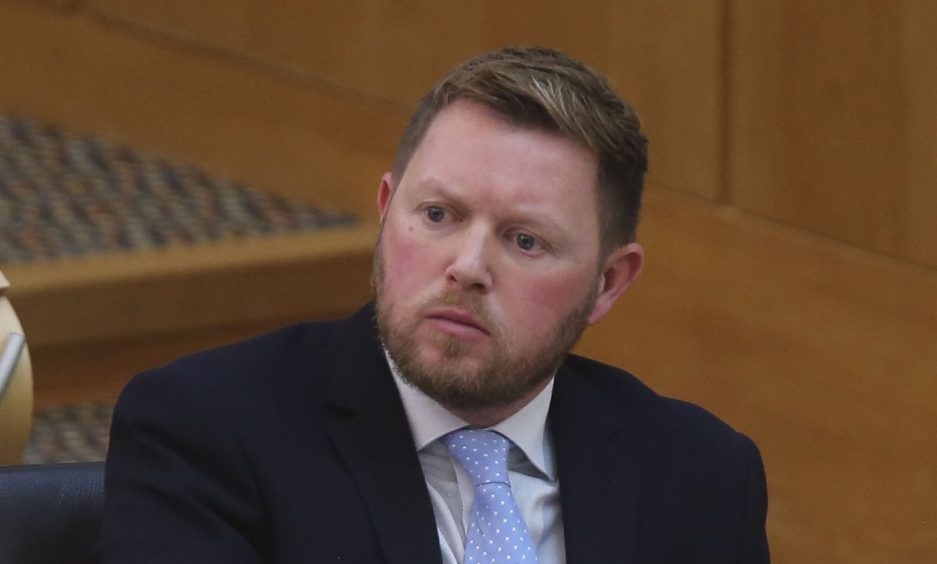People caught with class A drugs such as heroin will be offered a police warning instead of being referred to prosecutors in a radical justice shake-up branded “de facto decriminalisation”.
Lord Advocate Dorothy Bain, who was appointed Scotland’s most senior law officer in June, announced the move in a statement to the Scottish Parliament on Wednesday as part of efforts to tackle the country’s tragic record on drug deaths.
Figures published by the National Records of Scotland in July revealed Scotland suffered 1,339 drug-related deaths in 2020 – a 5% increase on the previous year’s statistics and the seventh consecutive time deaths have reached record levels.
We also reported last week how drug policy minister Angela Constance described new figures showing a further 722 people died from suspected drug deaths during the first half of 2021 as “appalling”.
Extending powers
Class A drugs include substances such as crack cocaine, cocaine, ecstasy (MDMA), heroin, LSD, magic mushrooms, methadone and methamphetamine (crystal meth).
Officers are already able to deal with some low-level offences by issuing a recorded police warning on the spot or retrospectively, including for the possession of Class C and Class B drugs.
The lord advocate told MSPs those powers will now be extended to include the most highly controlled substances.
She said: “I have considered the review and I have decided that an extension of the recorded police warning guidelines to include possession offences for Class A drugs is appropriate.
“Police officers may therefore choose to issue a recorded police warning for simple possession offences for all classes of drugs.”
Ms Bain added: “The range of options available to police, prosecutors and courts reflects the fact that in Scotland there is no one size fits all response to an individual found in possession of a controlled substance or an individual dependent on drugs.”

The move will not apply to drug supply offences and the lord advocate stressed it does not amount to formal decriminalisation.
Officers will also retain the ability to report appropriate cases to the procurator fiscal and refer vulnerable people to support services.
Suspected offenders may still refuse a warning.
Mixed reaction
The move received a mixed reaction from opposition MSPs, with some pointing to its importance to cities like Dundee “where whole communities are devastated by the failures of the ‘war on drugs’ approach”.
However, others complained that such a major policy change should have been the subject of a proper debate at Parliament and voted on by all parties, rather than being announced at short notice.
The Scottish Conservatives claimed the Government had made police officers’ jobs “impossible with the de-facto decriminalisation” of the most dangerous drugs.
The party said Police Scotland guidance stating warnings “seek to have a positive impact on individuals by not criminalising them” contradicts the lord advocate’s claim that the move does not represent decriminalisation.
It has called for a full Scottish Parliament debate and vote on the issue.
Tory justice spokesman Jamie Greene MSP insisted “nothing that has been said today will stop drug deaths” and the only way to tackle Scotland’s drug deaths crisis is to “improve access to treatment and rehabilitation, not to dilute how seriously we treat possession of deadly drugs like heroin, crystal meth and crack cocaine.”
He said the lord advocate’s announcement “will benefit drug dealers by making it more difficult to stop the supply”.
‘This will not help on its own’
The move was described as “very welcome and positive” by Annemarie Ward, CEO of the charity Faces and Voices of Recovery UK.
She said diversion from prosecution “will prevent many people who really need help and support from being forced through our criminal justice system”.
However, she agreed it must be followed by a right to recovery bill guaranteeing access to treatment for drug users – something the Scottish Conservatives have spearheaded calls for at Holyrood.
“This move will help but ultimately, it will not help people to get well on its own. It will not save lives on its own,” Ms Ward said.
“It has to be accompanied by increasing access to treatment and rehabilitation or nothing will change.”
The announcement was also welcomed by Scottish Labour’s drugs policy spokeswoman, Claire Baker, who said it is “only right” that a public health approach is used to tackle Scotland’s drug deaths crisis.
She said: “Today’s statement from the lord advocate is to be welcomed and I hope that it will lead to many more people being directed to the help and support that they need.
“Nonetheless, with a rise in the number of drug-related cases being diverted, it is incumbent on the SNP government to ensure that our social services are properly resourced.
“We have a chance to turn the page on Scotland’s drugs crisis, but only if we are willing to meet the challenge with dedication, hard-work and compassion.”
Needed in cities like Dundee
North East MSP Maggie Chapman said: “I know these warning guidelines are normally confidential, so I’m very pleased that the lord advocate was able to share that police will now have flexibility when dealing with all cases of possession of drugs.
“Given Scotland’s worryingly high drug death rate, it’s important we move to a harm reduction approach, and this move is an important step given the limited powers Scotland has to address it.
“It is especially needed in places like Dundee, where whole communities are devastated by the failures of the ‘war on drugs’ approach.
“Despite the fact much policy is reserved to Westminster, I hope we can go further and find ways to make safe consumption rooms possible, which could be a crucial part of tackling Scotland’s worryingly high drug death rates.”

